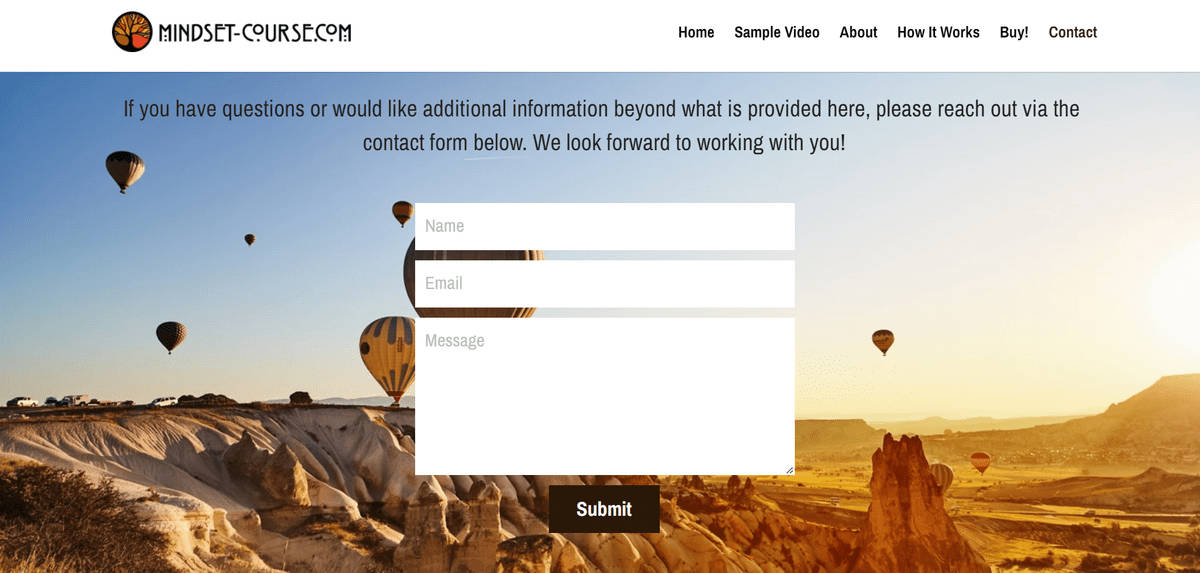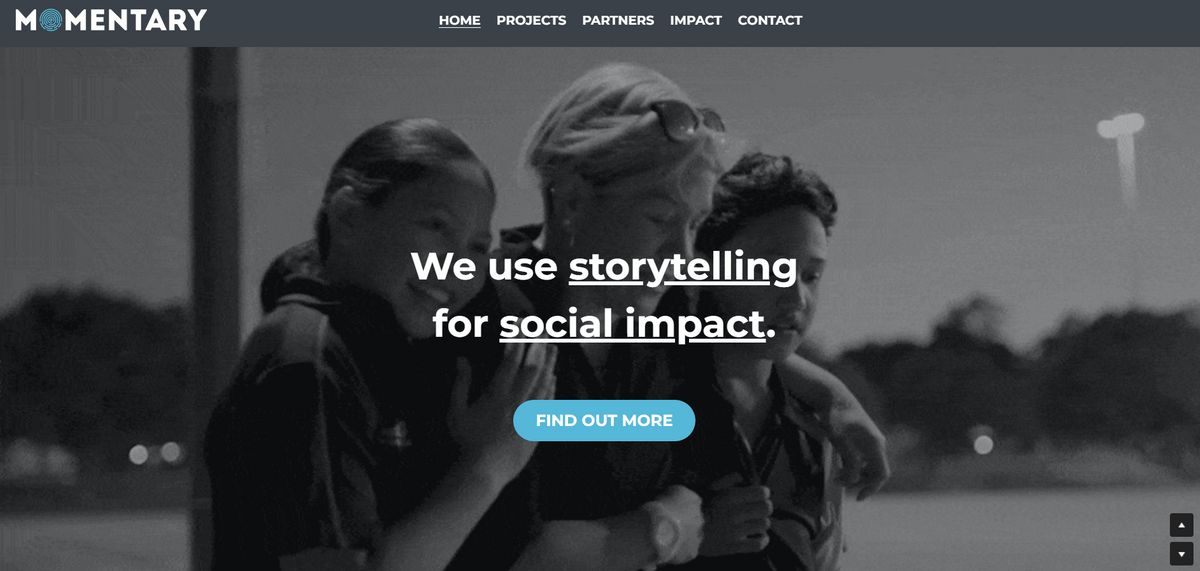Unraveling The Truth: Pros And Cons Of Email Marketing Unveiled
Unraveling The Truth: Pros And Cons Of Email Marketing Unveiled

Email marketing is essential for businesses to reach and engage with their target audience. By leveraging the power of email campaigns, companies can build strong customer relationships, drive repeat business, and increase brand awareness. However, like any marketing strategy, email marketing has pros and cons. This article will unveil the truth by exploring the advantages and disadvantages of email marketing. We will delve into the ins and outs of this strategy to help businesses make informed decisions about their marketing efforts.
Unveiling the Truth: Pros and Cons of Email Marketing
Email marketing offers a range of benefits that can significantly impact a business's success. On one hand, it allows companies to build strong customer relationships through targeted campaigns. Businesses can deliver personalized messages that resonate with their audience by tailoring content based on customer preferences and behaviors.
The Pros and Cons of Email Marketing Revealed
Furthermore, email marketing is a cost-effective and efficient strategy compared to traditional forms of advertising. With minimal costs involved in sending emails, businesses can reach many recipients at once without breaking the bank. Additionally, email campaigns provide high return on investment (ROI) and conversion rates when personalized content is used effectively.
Exploring the Pros and Cons of Email Marketing
While email marketing has numerous advantages, it also has its downsides that need to be considered. One potential risk is the prevalence of spam and unsolicited emails. Businesses must ensure they comply with anti-spam regulations to avoid damaging their reputation.
In addition, standing out in an overwhelmed inbox can be a challenge for businesses using email marketing, as competition for attention is fierce. Crafting compelling subject lines and engaging content becomes crucial to capture subscribers' attention.
Lastly, compliance with legal issues such as data protection regulations must be carefully navigated to avoid any legal consequences or breaches of trust with customers.
By carefully weighing the pros and cons of email marketing, businesses can make informed decisions about whether this strategy is the right fit for their marketing goals. Strikingly, a leading website builder and digital marketing platform, offers a range of tools and features to help businesses harness the power of understanding the pros and cons of email marketing. With visually appealing and responsive email templates, businesses can create engaging newsletters and seamlessly integrate them into their websites for enhanced user experience.
Entrepreneurs must know the advantages and disadvantages of email marketing for businesses. By leveraging its strengths, such as building strong customer relationships, driving repeat business, and increasing brand awareness while mitigating its weaknesses, such as potential damage to brand reputation or subscriber fatigue, companies can maximize the benefits of this strategy. With the support of platforms like Strikingly, businesses can easily navigate the pros and cons of email marketing and empower their digital marketing efforts.
The Pros of Email Marketing
Image taken from Mindset Course Online
Email marketing has numerous advantages, making it a powerful tool for businesses to connect with their audience and drive results. Let's explore the pros of email marketing in detail:
1. Building Strong Customer Relationships through Targeted Campaigns
One of the pros of email marketing is its ability to help businesses build strong customer relationships. Businesses can deliver personalized content through targeted campaigns directly to their subscribers' inboxes. Businesses can ensure their messages resonate with each recipient by segmenting their email lists based on demographics, interests, or previous interactions.
This targeted approach allows businesses to provide relevant information, offers, and updates to their subscribers, fostering a sense of trust and loyalty. By consistently delivering valuable content, companies can establish themselves as industry leaders and go-to resources for their customers.
2. Cost-Effective and Efficient Marketing Strategy
Another pros of email marketing is that they are more cost effective than traditional print advertising or direct mail campaigns. With minimal expenses in designing and sending emails, businesses can reach a large audience at a fraction of the cost.
Moreover, email marketing enables businesses to automate various aspects of their campaigns, saving time and effort. With automation tools available through platforms like Strikingly, businesses can set up automated welcome emails, follow-ups, or abandoned cart reminders. This efficiency allows marketers to focus on other essential tasks while maintaining consistent communication with their audience.
3. High ROI and Conversion Rates with Personalized Content
The personalized nature of email content plays a significant role in driving these high conversion rates. By tailoring messages based on subscriber preferences or behaviors, businesses can deliver highly relevant offers or recommendations that resonate with their audience. This personalized approach increases the chances of recipients engaging with the content and taking desired actions, such as purchasing or signing up for a service.
Overall, the pros of email marketing include building strong customer relationships through targeted campaigns, cost-effectiveness, and efficiency, as well as high ROI and conversion rates with personalized content. Businesses can effectively engage their audience and drive desired outcomes by leveraging these advantages.
The Cons of Email Marketing
Image taken from Datable Services
1. Potential Risk of Spam and Unsolicited Emails
One of the significant drawbacks of email marketing is the potential risk of being labeled as spam or sending unsolicited emails. With the increasing number of promotional emails flooding users' inboxes, it's becoming more challenging to stand out and avoid being marked as spam. This can negatively impact your brand reputation and lower email open rates. Ensuring your email campaigns comply with anti-spam laws and regulations, such as including an opt-out option for recipients, is essential to mitigate this risk.
Another challenge of email marketing is the limited attention span of recipients. With people constantly bombarded with information, capturing their attention and keeping them engaged with your email content can be difficult. To overcome this, it's essential to create compelling subject lines and concise, visually appealing emails that quickly convey the value or benefit to the recipient. Additionally, personalization and targeting based on user preferences can increase the relevance of your emails and make them more likely to be opened and read.
2. Overwhelmed Inbox: The Challenge of Standing Out
In today's digital age, people receive countless emails daily, making it difficult for your email marketing campaigns to grab their attention. With limited time and attention spans, subscribers often skim through their inboxes and delete or ignore emails that don't immediately interest them. This poses a challenge for businesses trying to make their messages stand out amidst the clutter. To overcome this hurdle, creating compelling subject lines, personalized content, and visually appealing designs is crucial to capture recipients' attention.
In addition to creating compelling subject lines, personalized content, and visually appealing designs, businesses can leverage storytelling in their email marketing campaigns. By crafting narratives that resonate with subscribers emotionally, brands can create a deeper connection and increase the chances of their messages being read and engaged. Whether it's sharing customer success stories or weaving a narrative around the benefits of a product or service, storytelling adds an element of intrigue. It captivates readers, making them more likely to take action and convert into loyal customers.
3. Compliance and Legal Issues: Navigating Through Regulations
Email marketing is subject to various compliance and legal issues that businesses must navigate carefully. Anti-spam laws like the CAN-SPAM Act in the United States require businesses to include accurate sender information, clearly identify commercial messages, and promptly honor recipients' opt-out requests. Failure to comply with these regulations can result in penalties and damage your brand reputation. It's essential to stay informed about these laws and ensure that your email marketing practices align with them.
In addition to legal compliance, businesses must also consider the ethical implications of email marketing. While it can effectively reach a large audience, bombarding recipients with excessive or irrelevant emails can lead to annoyance and frustration. Businesses must balance promoting their products or services and respecting the privacy and preferences of their subscribers. By adopting a thoughtful and targeted approach, businesses can build trust with their audience and enhance the overall effectiveness of their email marketing campaigns.
Advantages of Email Marketing
Image taken from Antoine Rangotte Troletti
Email marketing offers several advantages that can help businesses drive repeat business, track and analyze data, and increase brand awareness and customer engagement.
1. Driving Repeat Business with Engaging Newsletters
One of the key advantages of email marketing is its ability to drive repeat business through engaging newsletters. By regularly sending out newsletters to subscribers, businesses can stay top-of-mind and encourage customers to make repeat purchases. These newsletters can include updates on new products or services, exclusive discounts or promotions, and helpful content that adds value to the customer's experience.
Furthermore, email marketing allows businesses to track and analyze the effectiveness of their campaigns quickly. Email marketing software will enable companies to monitor open, click-through, and conversion rates. This valuable data provides insights into customer behavior and preferences, allowing businesses to effectively refine their strategies and target their audience. With this information, businesses can make data-driven decisions to optimize email marketing efforts and drive better results.
2. Easy Tracking and Analytics for Data-Driven Decision Making
Email marketing provides businesses with easy tracking and analytics tools that enable data-driven decision-making. With email marketing platforms like Strikingly, businesses can track open rates, click-through rates, conversion rates, and other essential metrics to gain insights into their campaign's performance. This data allows businesses to make informed decisions on optimizing their email marketing strategies for better results.
In addition to tracking and analytics tools, email marketing allows businesses to personalize their messages and connect with their audience more intimately. With features like segmentation and automation, businesses can tailor their emails based on customer preferences, interests, and behaviors. By delivering relevant content to the right people at the right time, businesses can build stronger relationships with their subscribers and increase the chances of conversions.
3. Increased Brand Awareness and Customer Engagement
Another advantage of email marketing is its ability to increase brand awareness and customer engagement. Through personalized emails tailored to each subscriber's interests and preferences, businesses can create a more customized customer experience. By consistently delivering valuable content directly to their inbox, businesses can build stronger relationships with their audience, leading to increased brand loyalty and customer engagement.
Including Strikingly in the discussion enhances these advantages even further. With Strikingly's user-friendly email marketing tools and responsive email templates, businesses can create visually appealing emails that capture attention and drive engagement. Integrating Strikingly websites enhances the user experience by seamlessly connecting email campaigns with website content.
Disadvantages of Email Marketing
Image taken from Momentary
Like any marketing strategy, email marketing has drawbacks that businesses should be aware of. Understanding these disadvantages can help companies make informed decisions and mitigate potential risks. Here are three critical disadvantages of email marketing:
1. Potential Damage to Brand Reputation with Poorly Crafted Emails
One major disadvantage of email marketing is the potential damage to a brand's reputation if emails are poorly crafted or executed. Sending out emails with spelling errors, grammatical mistakes, or irrelevant content can negatively impact recipients. This can lead subscribers to unsubscribe from future emails and even tarnish the brand's image through word-of-mouth.
To avoid this disadvantage, businesses should invest in creating high-quality content that is engaging, relevant, and error-free. Proofreading and testing emails before sending them out are crucial to maintaining a positive brand reputation.
2. Email Fatigue: The Risk of Irritating Subscribers
Another disadvantage of email marketing is the risk of irritating subscribers and causing email fatigue. When businesses bombard their subscribers' inboxes with excessive or repetitive emails, it can lead to frustration and annoyance.
To prevent email fatigue, businesses must balance maintaining regular communication with subscribers and avoiding overwhelming them with too many messages. Segmenting email lists based on subscriber preferences and interests can help ensure that recipients receive relevant content without feeling overwhelmed.
3. Limited Visual Appeal and Creativity in Email Design
Unlike other digital marketing channels like social media or websites, email marketing has limitations regarding visual appeal and design creativity. Emails often have strict formatting restrictions due to compatibility issues across different devices and email clients.
Despite these limitations, businesses can still enhance the visual appeal of their emails by utilizing responsive design techniques that ensure optimal display across various devices. Additionally, visually appealing images or interactive elements can help capture subscribers' attention and increase engagement.
Strikingly and Email Marketing
Image taken from Ashmith
1. Harnessing the Power of Visual and Responsive Email Templates
Strikingly understands the importance of visually appealing emails in capturing recipients' attention. With their collection of stunning email templates, businesses can create eye-catching campaigns that stand out in crowded inboxes. These templates are visually appealing and responsive, ensuring emails look great on any device. By utilizing Strikingly's email templates, businesses can effectively convey their message and increase engagement with their audience.
2. Utilizing Strikingly's Email Marketing Tools for Seamless Campaigns
Strikingly offers a comprehensive suite of email marketing tools to help businesses streamline their campaigns. From designing and scheduling emails to managing subscriber lists and tracking performance, Strikingly provides all the necessary features for successful email marketing. Their user-friendly interface makes it easy for businesses of all sizes to create professional-looking emails and automate their marketing efforts. With Strikingly's tools, companies can save time and effort while maximizing the impact of their email campaigns.
3. Integration with Strikingly Websites: Enhancing User Experience
One significant advantage of using Strikingly for email marketing is its seamless integration with websites built on the platform. Businesses can easily connect their website's contact forms to email marketing campaigns, ensuring a smooth transition from lead generation to nurturing through personalized emails. This integration allows businesses to provide a cohesive user experience by delivering relevant content based on user interactions with their website. By leveraging this integration, businesses can enhance customer engagement and drive conversions.
While understanding the pros and cons of email marketing, businesses can leverage its advantages using Strikingly's powerful tools and features. With visually stunning templates, seamless campaign management tools, and integration with Strikingly websites, businesses can enhance their email marketing efforts and achieve better results. Strikingly empowers businesses in their email marketing journey by making informed decisions and effectively leveraging the advantages while mitigating the disadvantages.
Kickstart Your E-commerce Journey With Strikingly Websites!
Email marketing is a powerful tool that comes with its own set of pros and cons. By weighing the pros and cons of email marketing, businesses can make informed decisions about incorporating email marketing into their overall marketing strategies.
When considering the pros and cons of email marketing, one must recognize the ability to build strong customer relationships through targeted campaigns. Businesses can foster customer trust and loyalty by sending personalized content to specific audience segments.
Another advantage is the cost-effectiveness and efficiency of email marketing. Compared to traditional forms of advertising, email marketing allows businesses to reach a large audience at a fraction of the cost. Additionally, with automated tools and analytics, businesses can easily track their campaigns' performance and make data-driven decisions.
The high return on investment (ROI) and conversion rates associated with personalized content must be addressed, too. Businesses can increase engagement and drive conversions by tailoring emails to individual recipients' preferences and needs.
However, there are also cons to consider regarding email marketing. One potential risk is the prevalence of spam and unsolicited emails. To mitigate this issue, businesses must comply with regulations such as obtaining consent from recipients before sending emails.
Another challenge is standing out in an overwhelmed inbox. With countless emails flooding inboxes daily, businesses must craft compelling subject lines and engaging content that captures recipients' attention.
Compliance with legal issues is also crucial in mastering the pros and cons of email marketing. Businesses must navigate through regulations such as the CAN-SPAM Act to avoid penalties or damage to their reputation.
Despite these challenges, implementing an effective email marketing strategy has numerous advantages. Engaging in newsletters can drive repeat business by keeping customers informed about new products or promotions.
Furthermore, easy tracking and analytics provide valuable insights for data-driven decision-making. Businesses can monitor open rates, click-through rates, and other metrics to optimize their campaigns for better results.
Understanding the pros and cons of email marketing also helps increase brand awareness and customer engagement. By consistently delivering valuable content to subscribers, businesses can build a loyal customer base and strengthen their brand presence.
However, there are also disadvantages to consider. Poorly crafted emails have the potential to damage a brand's reputation. Businesses need to ensure their emails are well-designed, error-free, and provide value to recipients.
Moreover, email fatigue is a risk that businesses must be mindful of. Bombarding subscribers with too many emails can lead to irritation and unsubscribes. It is crucial to balance staying top-of-mind and not overwhelming recipients.
Lastly, email design has its limitations when it comes to visual appeal and creativity. Unlike other marketing channels, such as social media or websites, emails have certain constraints regarding layout and design options.
While learning the pros and cons of email marketings, it remains an effective strategy for businesses when leveraged correctly. By carefully weighing the advantages and disadvantages of email marketing, businesses can make informed decisions about incorporating email marketing into their overall marketing efforts.
Strikingly is a platform that empowers businesses in their email marketing journey by offering visual and responsive email templates. With Strikingly's user-friendly tools and website integration, businesses can enhance user experience and optimize their email campaigns for better results. What are you waiting for? Chat with us today!





